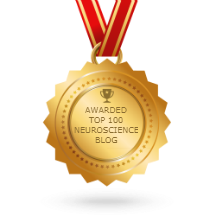-
6
Jun
Riesenhuber Lab, Department of Neuroscience, Georgetown University, Washington, DC
A postdoctoral fellow position is available, starting immediately, to participate in a research project studying the neural mechanisms underlying “fast” object recognition using single-trial analysis of high-density EEG data, as part of a larger collaborative project aiming to develop a real-time neurally-based target detection system combining machine and biological vision.
The candidate is expected to take on a main role in the analysis of the acquired EEG data and their integration in our computational model of object recogntion in cortex, which in turn will influence experimental design, with the goal of exploring ways to maximally utilize the brain’s perceptual processing bandwidth. A strong quantitative background and experience in neural data analysis are required. Experience with EEG and psychophysics is a strong plus, as is training in biological and/or machine vision. Experience with Mac OS X, MATLAB, and C++ preferred. This position is also of interest for PhDs in computer science or engineering with an interest in moving into computational neuroscience.
The position is for one year, with the option to renew for two additional years, given satisfactory performance and available funding. Salary is competitive. Candidates need to be US citizens or permanent residents.
The project is a collaboration between several companies and universities. Our lab investigates the computational mechanisms underlying human object recognition as a gateway to understanding information processing and learning in cortex. In our work, we combine computational modeling with psychophysical, fMRI and EEG data from our own lab and collaborators, as well as with single unit data obtained in collaboration with physiology labs. For more information, see http://maxlab.neuro.georgetown.edu.
Georgetown University has a vibrant neuroscience community with over forty labs participating in the Interdisciplinary Program in Neuroscience. Its Center for Functional and Molecular Imaging (of which our lab is a member) features a recently upgraded research-dedicated 3T scanner and several EEG and NIRS recording systems. Georgetown’s scenic campus is located at the edge of Washington, DC, one of the most intellectual and culturally rich cities in the country.
Interested candidates should send a CV, a brief (1 page) statement of research interests, representative reprints, and the names and contact information of three references by email to Maximilian Riesenhuber (mr287@georgetown.edu). Review of applications will begin immediately, and will continue until the position is filled. Informal inquiries are welcome.
- Published by Dimitrios A. Adamos in: Jobs
- RSS feed subscription!

 Neurobot via RSS
Neurobot via RSS
